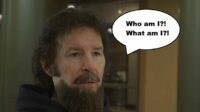Home Again is one of those heart-warming comedies that stays with you after you’ve watched it. It tugs on the heartstrings, brings ample amounts of laughter, and presents relatable plights of varying degrees for audiences to connect with.
Coming from the mind of Hallie Meyers-Shyer, this was a noteworthy debut. I’ve long been a fan of her family’s. Her parents are filmmakers Nancy Meyers and Charles Shyer. Nancy Meyers’ film The Holiday is one of my absolute favorites, and Charles Shyer wrote Smokey and the Bandit, which has long been a favorite in my family. Obviously Hallie inherited their talents and used it to write a story of her own.
Crisscrossing Beginnings
When we first meet the array of characters, they’re all in the midst of their new beginnings. Alice (Reese Witherspoon) has recently moved back to her hometown of Los Angeles, separated from her husband, and trying to help her two young daughters adjust to the move. Plus, she’s trying to start her own interior design business. Needless to say, her plate is full.
Meanwhile, three young filmmakers named George (Jon Rudnitsky), Teddy (Nat Wolff) and Harry (Pico Alexander) are in LA hoping to pitch their short film to producers who would provide the funding they need to turn it into a feature film. They’re just about to lose their current room at a hotel as well, so when they meet Alice, it proves to be perfect timing.
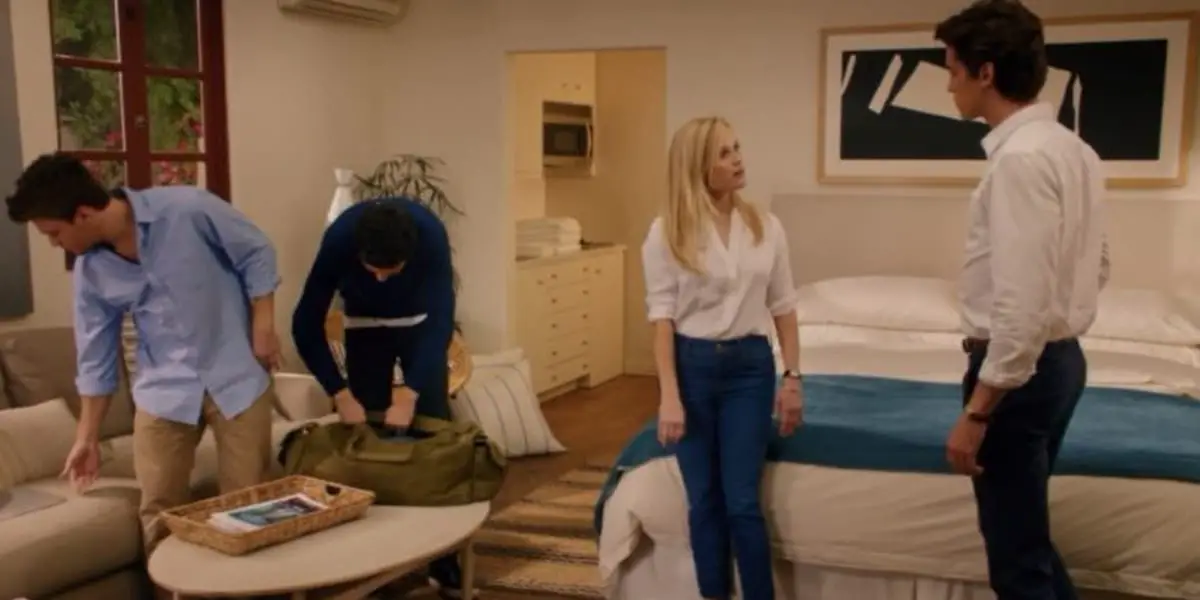
It was risky for Alice to bring three strangers to her home, but it turns out to be one of the best things she ever did. Alice’s mother talks her into letting the three filmmakers stay in the guesthouse on a more permanent basis while they try to get their careers off the ground, and the moment Alice expresses her doubts, she glances outside to see them happily playing a game with her two daughters. It’s a reassurance that again has perfect timing, and it officially opens a new chapter in all their lives.
I truly believe that the right people come into your life when you need them the most. I loved that the events in Home Again supported that belief, because it’s a reminder that you never know what comes next in life. It’s always full of surprises. Some good, some not so much. The fact is, you just have to appreciate the good surprises that much more.
It’s a support system, too. Teddy helps Alice launch her website, George helps alleviate her daughter Isabel’s anxiety and encourages her to pursue her writing, and Harry, as Alice herself later tells him, made her feelings of loneliness and terror fade away. The guys helped out around the house in turn for rent-free living. Likewise, by providing the guys a place to stay, Alice gave them one of the best gifts anyone could ever give anyone else, in which she allowed them to stay and pursue their dream careers.
The day the film begins, it’s Alice’s fortieth birthday. It’s a new chapter in her life, and initially, she’s crying and obviously dreading the day ahead. However, prior to this, she recalls her late father’s attitude towards her birthday, in which he would happily celebrate and tell her that “today is your day.” It turns out that he was right; Alice not only celebrated a milestone birthday, but a milestone chapter that would change her life for the better.
Complicated Love
I never truly saw any real chemistry between Alice and Harry. That’s perhaps the one thing in the film that I could do without, but looking back on it, I understand its necessity, given Alice and Harry were meant to learn a lesson.
Alice and Harry were more like a fling; they had some fun for a bit, but it was never meant to last. The two were at very different points in their lives, and honestly, Harry was very immature. She did realize she had to “know better.” Harry is clearly devastated, as is Alice too, but it was smart for her to end things before it went any further.
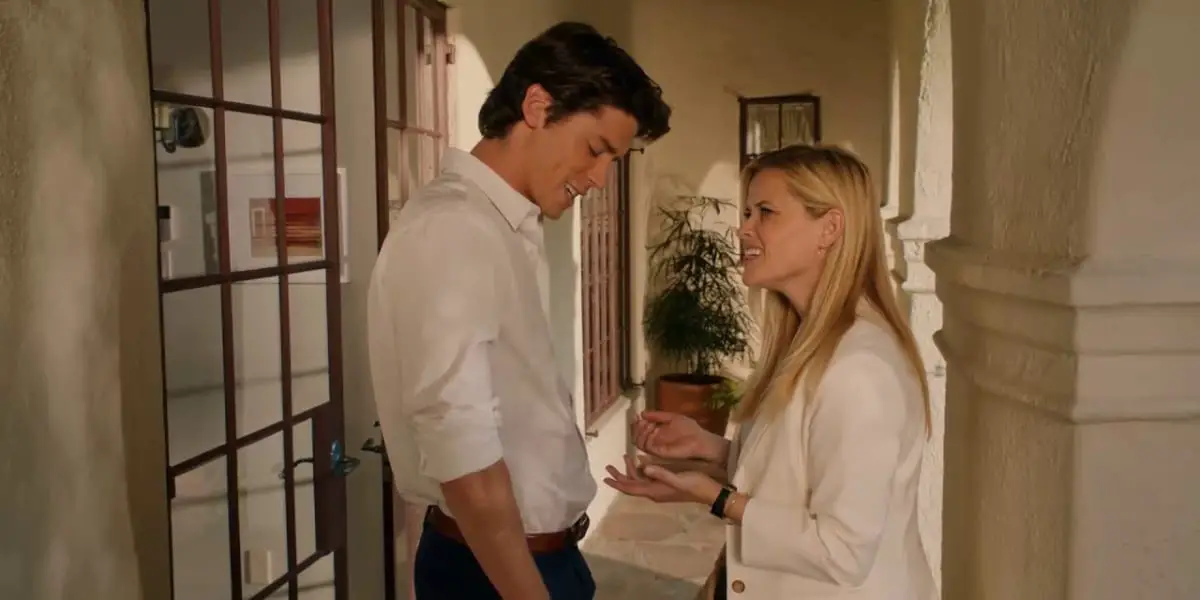
The other thing is that Alice seemed to act more as a maternal figure towards the boys. She was kind of like a guide, and when Harry was too intoxicated to sleep with her, she took care of him. She even washed his clothes!
To be honest, if Alice were going to be with someone, I thought she and George could work. George is my favorite character in the movie; I love, love, love him! He really did understand people, as Harry says in the film, and it definitely contributed to his writing. Plus, he was so good to Alice and to her kids, especially Isabel.
George bonds with her over her late father’s work; George confesses he is a major fan of Alice’s filmmaker father and she shows him an old script filled with her father’s notes. It’s a personal thing for her to do, but obviously she trusts George enough to show him something she holds dear in memory of her dad. She also surprisingly trusts him to drive John’s old car to take Isabel to her guitar lessons when Alice has to tend to her client. It’s pretty funny watching him drive a car with a stick that he clearly has no idea how to drive, but he does his best.
That car ride turned out to be important for two reasons, though. One, George gets a phone call with an offer to do other writing work on the side, which he is at first hesitant about but eventually agrees to. It’s him taking an opportunity, and it’s a good example for Isabel. More importantly, though, it gives George a chance to bond with Isabel. They’re both writers and they both relate on that level; George becomes very important to Isabel, acting as her emotional support and encouraging her to pursue writing a play for school.
For Isabel, who was clearly struggling with anxiety, this is something she really needed. She needed emotional support from someone like George, who had similar interests and experiences. Plus, she was watching him pursue his career. Those are important, especially to a kid who fears how her work will be perceived, or if she’ll be successful at all.
Even after George, Teddy and Harry move out, George keeps in contact with Isabel, texting her. He genuinely cares, and he keeps his promise to stand on the side of the stage with Isabel’s teacher while she narrates her play before a large audience. His emotional support helps her shine and she receives a standing ovation for her play.
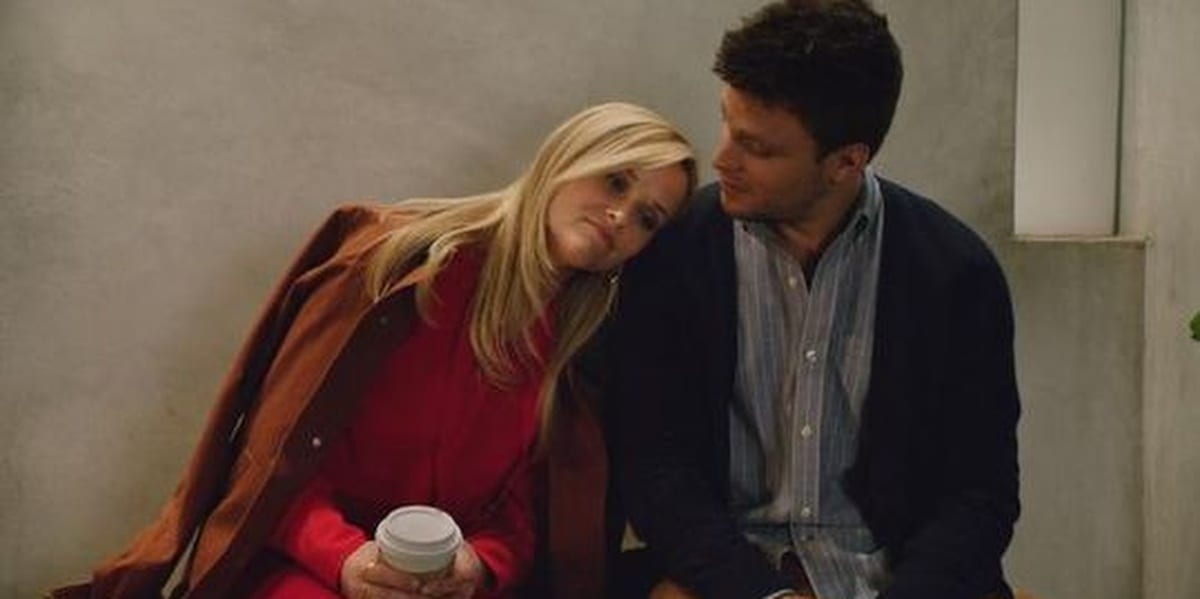
George is always there for Alice when she really needs him, too. He picks her up after a disastrous date, in which she also quit on an awful client, and he just lets her talk things out, listening attentively. He understands her pain at how things ended with Harry, offering her sage words of wisdom in that Harry has “that affect” on people, and that he doesn’t do the right thing enough, because he doesn’t know how—though, George adds that he says that out of love. He loves Harry and Teddy, but he’s not afraid to tell the truth and call them out when they’re wrong. Especially with Harry, who tends to screw up more often than not.
Hilariously, Alice appreciates how much George understands, and she lets him know that he’s one of the good ones, and that he’s “like a woman.” It’s not exactly what George probably wanted to hear, but he understood what she meant, and it’s a cute little moment to end their serious conversation on a more lighthearted note.
Unlike Teddy and Harry, George knew when to step back and let Alice have her space, too. He stays out of it when he and Alice arrive back at the house to find her estranged husband, Austen (Michael Sheen) outside. He even keeps Teddy and Harry at bay when they want to intervene, concerned about Alice’s welfare and whether Austen is taking advantage of her. George knows what to say and when to say it; his description of Austen to Teddy and Harry is that Alice’s husband has “a classic Clark Gable thing going” with a hint of Sean Penn mixed in. George has pop culture references aplenty in several of his sentences; obviously he was meant for the film industry.
Growing Up Is Hard To Do
Alice has to face her past with her present. Austen’s unannounced visit turns out to be what she needed, as she finally realizes what she wants, and what she needs.
Austen is manipulative, and honestly, he’s an ass. He shows up, thinking it’s his house, his wife, and his kids—meaning he thinks he’s the boss, and everyone has to do things his way. He’s clearly been absent for too long. He complains about the guys’ presence, and he fails to see the bond between the guys and his kids. Austen is selfish and pompous in that respect. I didn’t blame Alice for wanting an official divorce—they were clearly over.
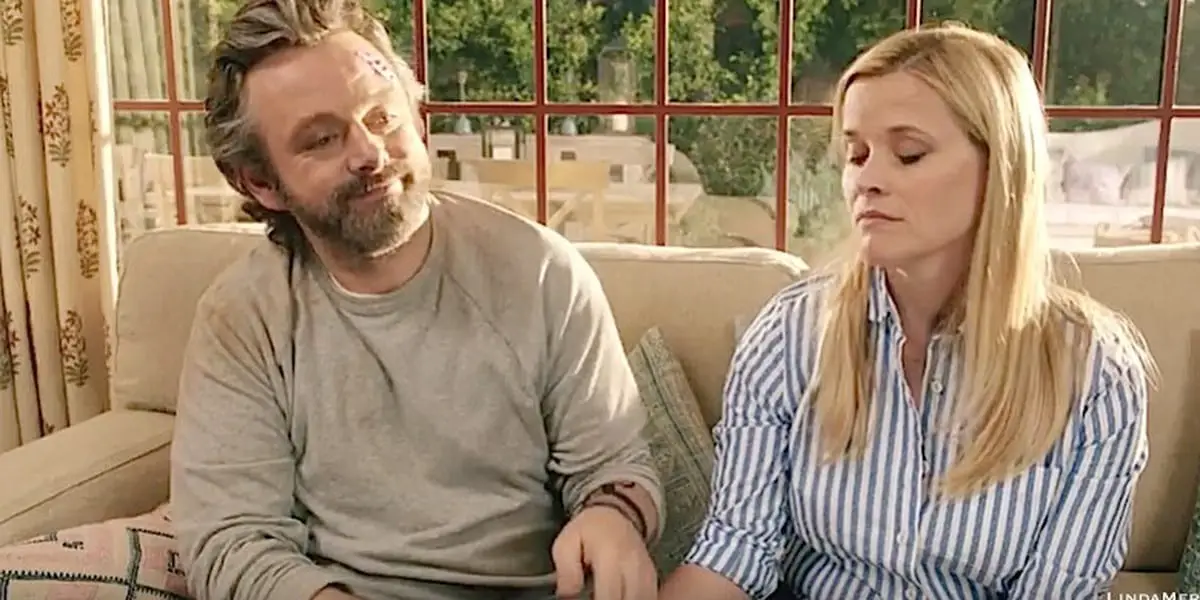
Plus, honestly, Austen deserved to have his butt kicked by Teddy when he did. I think it humbled Austen a bit; it’s hysterical how, even at Isabel’s play later in the movie, Austen still seems a little fearful of Teddy.
One of the best things, however, is how the film ends. Alice, Austen, their two kids, Alice’s mother and George, Teddy and Harry all having dinner together, celebrating Isabel’s play. Everyone is happy and civil. Alice mentioned earlier in the film that everything worked out the way it was supposed to, and she was right.
I think Alice’s daughters have closer bonds with the three guys than with their father. The three guys clearly put more time and interest into their lives than Austen has in some time. Though, Austen appears to be making up for it by the film’s conclusion. The girls were sadder about the filmmakers leaving their house than their dad was, after all, so Teddy had a point in telling Austen that “we” (meaning all of them) were better off without Austen around.
Nonetheless, civility was established and it’s nice that, even with Alice and Austen getting a divorce, they can still do family things with their daughters, Alice’s mother and George, Teddy and Harry in harmony. It’s an important message for the two girls, and it certainly makes everyone’s lives better.
Alice not only grew up relationship-wise, but also career-wise. She stood up (aided with confidence brought on by alcohol) to her client, Zoey, who was clearly taking advantage of Alice from the start. She assured Alice a bigger job was on the way, but that was an empty promise. Alice is trying to start a business, and just as she would dedicate her time to her clients, the same should be done by them in return. Alice was right to quit, though she should have done it at another time and in a more professional way to avoid bad reviews. Yet, what’s done is done, and Alice learned that her time is far more valuable than what Zoey was using her for, even if she was just starting out and needed all the business she could get.
Likewise, the three filmmakers had some growing up to do of their own. Harry especially. He learned not to take it personally that George and Teddy were seeking other work. The two reassure him that even if they’re working on other projects, they’re still dedicated to the movie they made together, and nothing will ever deter them from that.
Harry’s apology to Alice was mature and well thought-out; he apologizes for everything he did to hurt her, and adds that she deserves better than him. He learned from his experiences with Alice, and he will surely enter future relationships having learned from it so he doesn’t make the same mistakes twice.
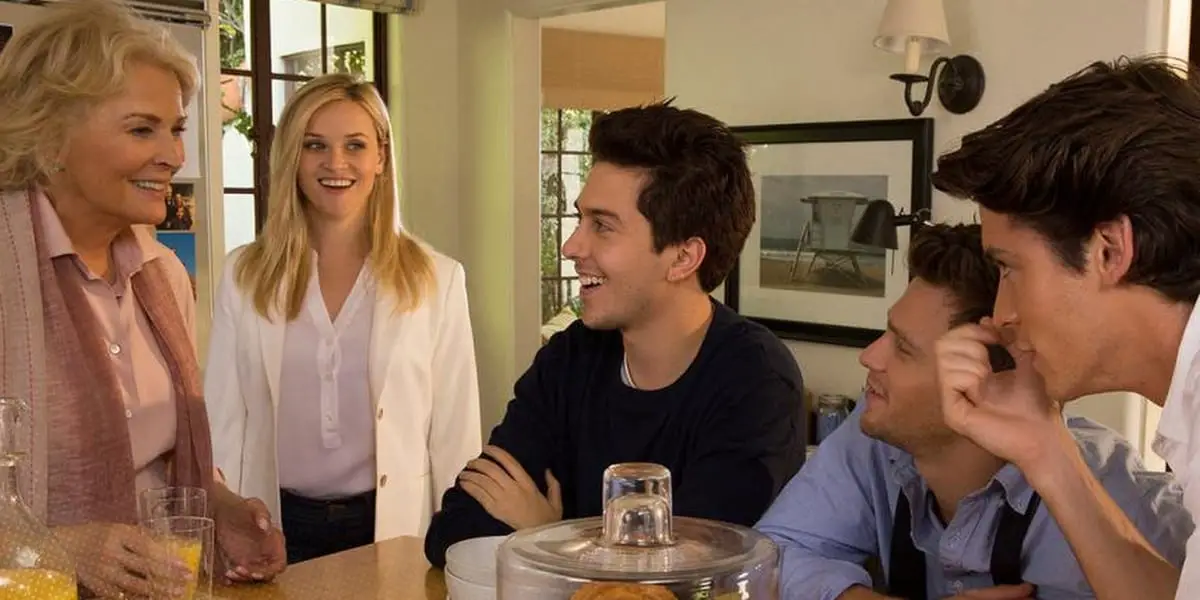
Teddy definitely learned to pick his fights. Austen did provoke him, but Teddy’s timing was the worst, as Alice and her two daughters witnessed Teddy beating up Austen. Teddy had good intentions, but perhaps he’ll either walk away or use his words next time in order to avoid such a disaster.
Teddy and George both had to learn to be more up front with Harry, regardless of whatever reaction they expect from him. They kept their other jobs hidden from him thinking they were sparing him grief, but it just made things worse, until they made up with Harry. George is shown to be wise beyond his years, but no one is perfect—everyone is prone to making mistakes every now and again.
The three filmmakers also learn to trust in themselves and not rely so much on producers—they know that it’s not the end of the world if something doesn’t work out, because there will be another producer down the road. George, from the beginning, is adamant that his script not be ripped apart. George peeking at the notes on the tablet of a potential producer was hilarious, primarily because of his horrified and obviously offended reaction.
Even when they’re in an important meeting, the three guys skip out early to make it to Isabel’s play in time. Though their careers are obviously important to them, the people in their lives matter more and they’re making time for that. There will always be another producer, but there will never be another play, and George would have broken his promise if he’d missed it.
Conclusion
Home Again is a good story. It’s one of those great movies that are rare. It’s a story for audiences to connect to, that touches their hearts and perhaps helps them with their own lives.
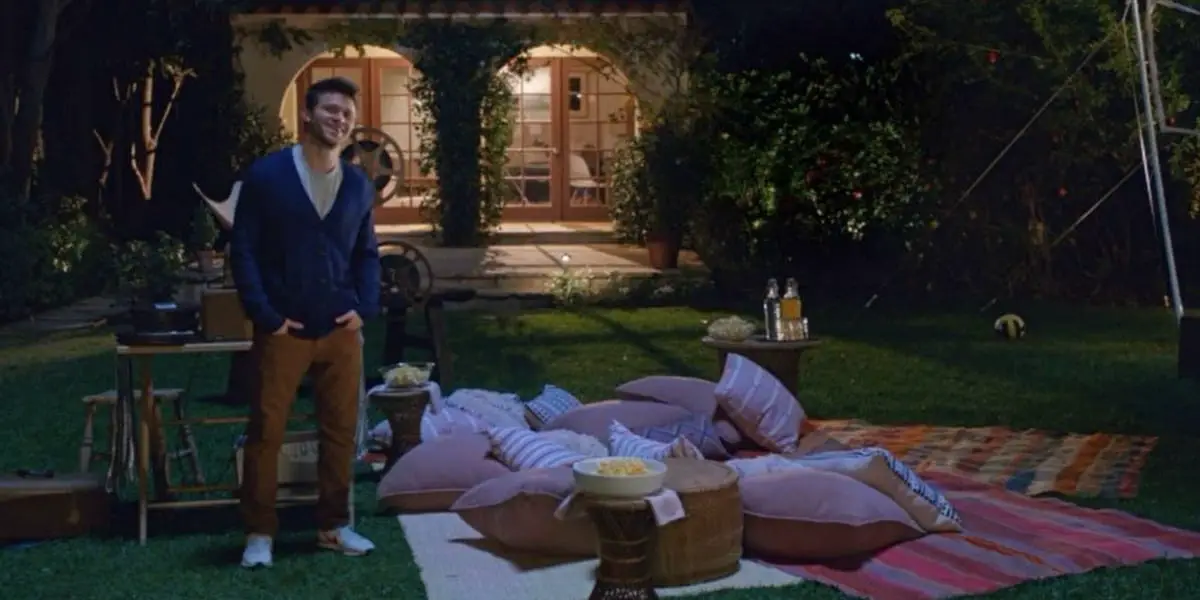
My favorite scene from the film is when the guys set up a movie night outside for Alice and her kids. They watch a film of her late father’s, which obviously means to the world to Alice. It’s something she and her kids will never forget; it’s going to be a treasured memory for them, and the fact that the guys set that up spontaneously turned a regular day into a marvelous one.
Isabel’s play ended up being about her family, which included the three filmmakers by the film’s end, as her sister pointed out. Sometimes life is the best inspiration for a great story. Life is real, but when life has its surprises that can sometimes mimic fantasies, it renews a sense of hope and faith in that things change, and that life is good.
The film ends with the main characters all living their new chapter, their rocky beginnings mostly behind them, with adventures ahead for them to experience together.

